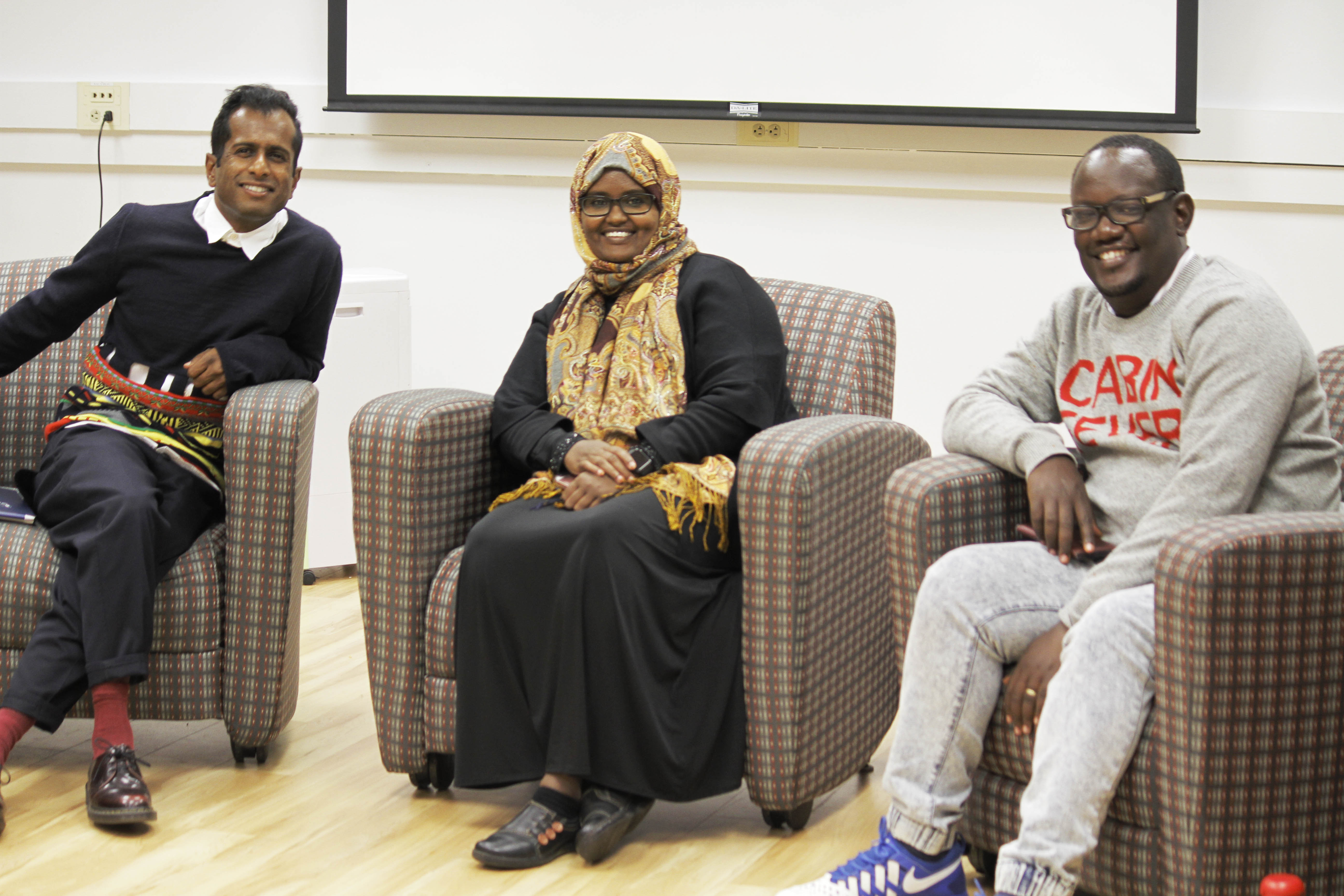
The Yale African Students Association hosted a talk with three African World Fellows Wednesday night, a forum in which the three visiting Fellows discussed potential development methods in Africa.
Nearly 30 Yale students and faculty gathered in the basement of the Afro-American Cultural Center at 9 p.m. to meet the speakers, all of whom are members of Yale’s Greenberg World Fellows Program, and hear about their work. After an opening introduction, the three speakers — Dr. Deqo Mohamed, Frank Rusa Nyakaana and Joshin Raghubar — answered questions and spoke about both their individual experiences as well as broader issues affecting the continent.
“Use your Western education not against the culture but within the culture to improve daily life,” said Mohamed, chief executive officer of the Dr. Hawa Abdi Foundation.
Mohamed spoke of her experience running Hope Village, a program her mother started in 1983 outside of Mogadishu, Somalia, as a camp for internally displaced people, in addition to teaching and practicing as an obstetrician-gynecologist.
The village currently hosts over 4,200 people, 70 percent of whom are women and children, according to Mohamed. In 2011, before the end of a nearly three-year civil war, the village was home to over 90,000 people.
Mohamed said she spends three days a week in meetings to ensure the village is safe and that its services are running smoothly.
Preventive medicine and education, she emphasized, are the best methods of empowering people in Somalia. Mohamed also spoke about the need for businesses and employment opportunities so that people do not have to rely on foreign aid to subsist.
Mohamed later added that Hope Village is starting a campaign to plant more trees in the village, given that during the years of ongoing conflict people were only cutting down trees, but not planting them back.
But that is only one facet of Mohamed’s work: The doctor is also involved in combating female genital mutilation in Somalia. In an interview with the News, she said ending the practice would need to involve economic development and legal reinforcement, but most importantly education.
“If more people knew [that female genital mutilation] has terrible side effects and has nothing to do with religion they might stop,” Mohamed said.
Deputy Component Manager of the Democratic Governance Facility in Uganda Nyakaana spoke about his work with democratic development and human rights promotion in Uganda, arguing that government transparency and accountability are critical for economic and social prosperity.
And the third fellow, Raghubar, chairman and founder of pan-African customer engagement agency iKineo and a board member of the African Leadership Network, said Africa is full of opportunity, creativity and passion. Raghubar encouraged entrepreneurship and technology as methods of development for the continent overall.
The role of art in development and culture was also woven through the event.
Mohamed explained that since much of Africa’s history has been told through a Western perspective, art is an important means by which African cultures should represent themselves. She added that the primary school in Hope Village recently created an art program, which would work towards this goal.
Raghubar spoke about the importance of art as a way to challenge society and create a place for dialogue. He said struggle art and protest art have historically been vibrant in South Africa.
Outreach Chair Ademide Ajayi ’19 said YASA hosted a conversation with African World Fellows last year as well and that the evening was organized to allow students who might be unaware of the World Fellows program to meet with and talk to the Fellows.
Sixteen Yale World Fellows from across the globe, hosted by the Jackson Institute for Global Affairs, have been on campus since mid-August and will stay until mid-December.







